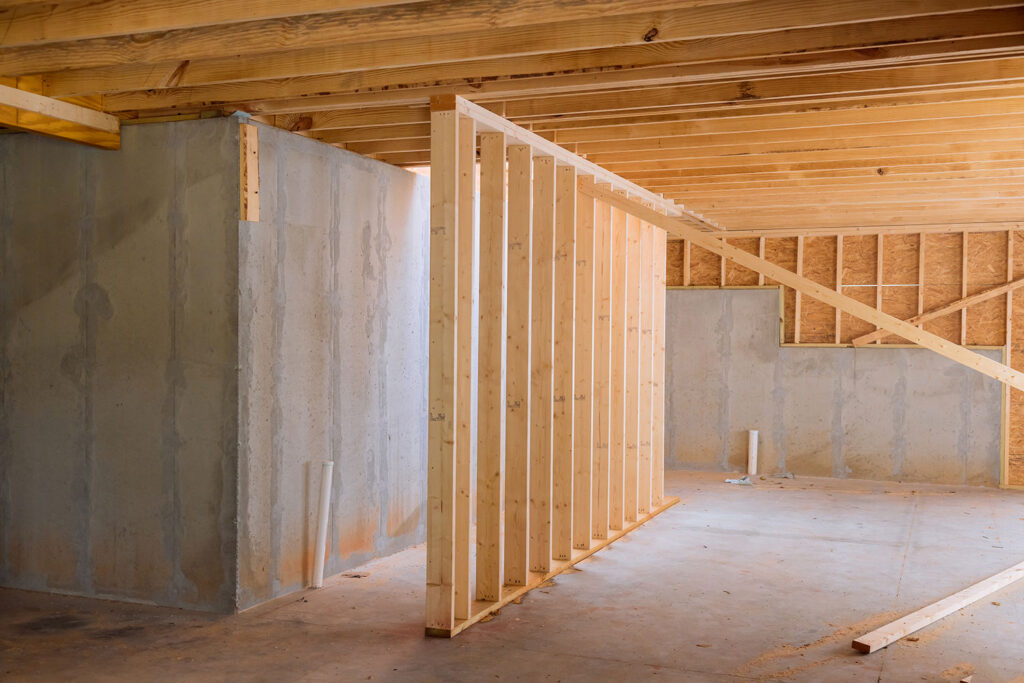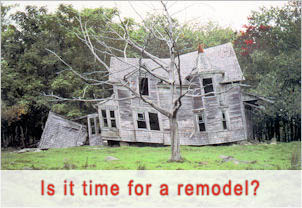
Should you DIY your home remodel or hire a pro? Take into account your own skills, your budget, and your desired timeline to decide what’s right for you.
On the surface, DIYing a remodel sounds appealing—saving money, having complete creative control, etc. However, it requires a big time commitment, proper tools and expertise in skilled trades such as plumbing or electrical work.
One of the biggest advantages to hiring a professional is the assurance of quality results and adherence to building codes. It generally does so with a greater up-front expense.
Each of these options comes with its own distinct challenges and benefits. The answer will vary based on how complicated your project is and how confident you are in doing the work.
In this guide, we’ll walk you through some of the most important things you need to understand. That’s how you should be able to do your remodel and project with confidence.
Key Takeaways
- Clearly define the scope of your renovation project, including goals, tasks, and potential challenges, to decide whether DIY or hiring a professional is the right choice.
- Be realistic about your skill set. Consider previous DIY projects you’ve taken on, and pinpoint where you would require a professional’s assistance. Consider local architectural or design workshops to improve your skills and confidence.
- Be honest about how much time you’ll have to devote to the project. Contrast this with the amount of man hours needed, keeping in mind rework that may happen or issues that can arise during production.
- Generally speaking, DIY projects are most successful on small and straightforward projects such as painting or other small-scale repairs, or basic landscaping. These projects usually involve simple tools, and the finished creations involve a sense of personal expression.
- When things get dicey Complex tasks such as electrical, plumbing, or structural changes require professional hiring and licensing. Their meticulous craftsmanship guarantees safety, adherence to codes, and superior quality workmanship.
- Consider the long-term benefits of expertise with the dangers of DIY error. Shoddy work means repairs will be expensive and they could even hurt your home’s resale value.
DIY or Pro: Understand the Basics
Before diving into a remodel, it’s important to reflect on your own abilities and availability. Think about what you’re comfortable doing yourself versus where you might want some extra help. The choices you make early on can shape your experience and the outcome of the project.
Define Project Scope Clearly
Get a clear vision of what you want to accomplish. Outline the general steps involved, from the beginning phases to the finishing details. Are you looking to refresh a space for aesthetics, improve functionality, or both? Knowing your “why” helps set the stage for what’s next.
Assess Your Skill Level Honestly
Take stock of your comfort zone. Some tasks feel manageable, others might feel out of reach. You don’t have to know everything—just be honest with yourself about what you’re ready to tackle and what you’re not. Learning is part of the process, but so is recognizing when to ask for help.
Evaluate Available Time Realistically
Consider your schedule and how much time you can reasonably dedicate. Projects can take longer than expected, so it’s helpful to plan with flexibility in mind. Make space in your calendar and think about how the work will fit into your daily routine.
When Does DIY Renovation Shine?
There’s something special about rolling up your sleeves and making a space your own. With the right mindset and a bit of preparation, taking the DIY route can be a deeply satisfying way to refresh your home. It doesn’t have to be grand—sometimes the smallest changes make the biggest impact.
Cosmetic Updates and Simple Tasks
Sometimes it’s the subtle shifts that bring the most joy—like adding a bold splash of color to a wall or switching up your décor to reflect your current vibe. These projects can feel approachable and offer a great way to express yourself without too much pressure. And if something doesn’t turn out exactly as planned? There’s usually room to adjust and keep going.
Tight Budget Considerations
When resources are limited, creativity steps in. Taking on parts of a project yourself can open up new ways to stretch your vision a little further. It’s not about doing everything—just about doing what feels doable, one step at a time. Be thoughtful, go slow, and trust your instincts.
Desire for a Personal Touch
Doing it yourself gives you the chance to shape something truly yours. Whether it’s reworking a piece you love or trying your hand at something new, that sense of ownership can be powerful. It’s about building more than just a space—it’s about creating something that holds meaning for you.
The Hidden Costs of DIY Projects
DIY home renovations can appear appealingly cost-effective, but the unforeseen costs can easily surpass expectations. DIY projects can be satisfying to do on your own, but make sure you consider all hidden costs, financial and non-financial, before diving in.
Time is Money: Value Your Hours
Your time is valuable too, and a home improvement project invariably takes much longer than expected. Once you calculate the hourly value of your time, it becomes much clearer how expensive DIY projects can be.
Investing 20 hours into a job that a pro could do in five hours is a huge drain on your time. That lost time might have been used earning overtime at your place of employment or on quality time with your loved ones.
Putting in new bathroom tiles would be a no-brainer on the surface. If it takes weeks because of errors or limited time, the project soon turns costlier than the original savings.
Tools and Materials Add Up
DIY sometimes involves tools you’ve never even heard of before, let alone own. For some projects, renting equipment alone can cost hundreds of dollars, and buying your own high-quality tools to do the job right is even more.
A weekend project can spiral into additional weekends if you discover mid-task that you need more supplies or the hardware store is closed. Even minor repairs can involve items such as adhesives, sealants or paints—which increase the overall expense.
Mistakes Can Be Expensive
Mistakes made on DIY projects could require reinvestment for repairs or even hiring a pro to make up for the work. Misaligned kitchen cabinets or improperly installed plumbing connections, for example, might need extensive rework.
Even in the DIY success stories, hiring a pro from the start might have been less expensive.
Realistic DIY Projects for Homeowners
If a DIY renovation is in your future, you should ideally be looking at projects that suit your abilities. Select projects that you get excited about tackling! Building your confidence through small and realistic projects that only need a few common tools will boost your spirits in tandem with your improved abode.
Painting and Minor Repairs
Painting a room is one of the easiest and most rewarding DIY projects you can tackle. Start by clearing the space—remove any furniture or cover it with drop cloths, and protect the floors as well. Use painter’s tape to achieve sharp, clean edges, and fill in small holes or wall cracks with spackle.
Once the spackle dries, lightly sand the surface to create a smooth base. Apply a primer before painting to ensure even coverage, and use high-quality brushes and rollers for a more polished, uniform finish. Investing in good paint can also reduce the need for frequent touch-ups down the road.
Simple home fixes—like stopping a running toilet or re-caulking a tub—are manageable for most beginners. Products like Drano can often clear minor drain clogs without much effort.
However, if the task involves electrical wiring or complex plumbing, it’s best to call in a professional. Not only is it safer, but it also ensures the job gets done right the first time.
Installing Basic Shelving
Mounting some floating shelves is a do-it-yourself project that is both useful and impressive. Be sure to really measure the space, make note of where studs are, and use a level to get a precise install.
DIY wall-mounted shelves Picturesque Floating shelves are a great way to add storage and character to a room. The most valuable tool is experience. A drill, stud finder, screws and other fasteners are essential tools.
Pre-assembled shelving kits make the experience easy for a novice.
Simple Landscaping Projects
Everyone thinks landscaping is easy, but it’s a lifetime of experience. Planting a flower garden, putting down fresh mulch or potted plants can give your yard an entirely new look.
Opt for climate-appropriate plants and pay attention to seasonal color changes to ensure a four-season look. Even fresh mulch or neatly trimmed hedges can work wonders on curb appeal and don’t take much more than elbow grease.
The Advantages of Hiring a Professional
When it comes to home remodeling, choosing between doing it yourself and hiring a professional can significantly influence the outcome of your project. That’s where the experience, know-how, and efficiency of a professional truly shine. Here’s a look at what makes bringing in experts such a worthwhile investment.
Expertise and Specialized Skills
Licensed professionals bring years of specialized training and hands-on experience to your project. They understand structural requirements, electrical layouts, and plumbing systems—critical components in avoiding costly and dangerous mistakes.
For example, misjudging load-bearing walls during a DIY renovation can lead to serious structural hazards. Hiring a professional ensures your project is safe from the start. Their industry knowledge ensures best practices are followed—whether it’s aligning kitchen cabinets or ensuring precise tile placement—resulting in a clean, polished finish.
Quality Craftsmanship Guaranteed
Hiring professionals guarantees a higher level of workmanship that stands the test of time. They adhere to strict building codes and standards, ensuring both safety and compliance.
Think of the difference between lumpy DIY drywall and the smooth, flawless finish achieved by an experienced drywall expert. Their precision and professional-grade tools elevate every detail, providing lasting value to your home.
Speed and Project Efficiency
Professionals work on a defined timeline, ensuring your project moves forward efficiently. They coordinate crews, schedule installations, troubleshoot issues, and keep everything on track—often shaving weeks or even months off your timeline.
A bathroom remodel that might take you several months to complete could be finished in just a few weeks by a professional team.
Access to Premium Materials
Contractors typically have established relationships with suppliers, enabling them to access higher-quality materials at better prices. Choosing premium materials not only enhances your home’s appearance but also its durability.
In the long run, you’ll save money by reducing the need for frequent repairs or replacements.

Complex Projects: Call the Pros
Whether it’s a kitchen remodel, a new swimming pool, or putting in an addition, many complex and potentially dangerous home renovations require expert guidance. Taking on these projects without the proper expertise can not only result in expensive errors, but create potentially dangerous conditions.
Electrical Work and Plumbing
Electrical and plumbing jobs are usually bigger projects than they look. Wiring a new circuit or installing a plumbing system for a bathroom remodel requires not only technical knowledge but adherence to strict codes. Just as bad wiring can lead to electrical fires at best or, at worst, someone’s death, improper plumbing can cause faucets to leak or flood homes.
Only licensed professionals have the sort of training and tools necessary to do these jobs readily and safely. A licensed electrician inspects your home’s electrical panel to ensure it can accommodate the increased load from new appliances. Additionally, they correctly seal all the pipes to ensure a future disaster doesn’t arise.
Structural Changes and Additions
Leave the major structural changes to the professionals. They are supposed to be the ones who tackle complex projects like adding a second story or removing load-bearing walls. These projects are literally essential to the stability of your home.
Only professionals who understand the intricacies of building codes can navigate them skillfully. They provide structural integrity, saving the risk of expensive collapses and liability issues. Poking holes in drywall isn’t too difficult, but moving critical support structures involves a higher level of planning and engineering expertise.
Intricate Cabinet Installation
Creative custom cabinetry undoubtedly improves both function and beauty, but even small misalignments in installation can compromise the final effect. Setting precise measurements, mounting correctly, and making adjustments for fit and comfort takes technical skill.
Fewer failed experimental iterations lead to better outcomes. Professionals deliver much more polished and refined results, which encourages less material waste, particularly on high-end or bespoke designs.
7 DIY vs. Pro: A Cost Comparison
When weighing the merits of DIY home remodeling versus hiring professionals, cost is one of the most important considerations. While it’s easy to assume that DIY is always the more cost-effective route, the financial picture isn’t always black and white. Let’s take a closer look at how the numbers stack up.
1. Upfront Expenses vs. Long-Term Value
DIY projects typically come with lower initial costs. Materials and tools can be purchased from local retailers or online, and with countless tutorials available on various platforms, many homeowners feel empowered to tackle basic tasks themselves.
However, professionals generally charge for their time and expertise, and larger projects can involve substantial costs when labor and materials are factored in. That said, professionally completed work tends to last longer and require less maintenance over time, adding long-term value to the property.
2. Material Quality and Installation Impact
Professionals often have access to higher-quality materials at more competitive prices due to established supplier relationships. DIYers typically rely on retail options, which may be more expensive and of lower quality.
The quality of installation also plays a significant role. Improper installation or poor workmanship can lead to a shorter lifespan for a renovation, requiring more repairs down the line.
3. DIY Mistakes and Rework Costs
Common DIY mistakes, like mismeasured cuts or ill-fitted installations, often require a pro to step in and fix. Fixing those errors usually increases the overall cost, negating any upfront savings.
4. Financing Options for DIY Projects
For DIYers, home equity loans or personal savings are typical funding sources. Budgeting realistically and carefully is essential, because unexpected costs can add up fast.
5. Professional Discounts on Materials
This is because contractors have access to supplier discounts that can offset the contractor’s labor costs. So, all those savings are not available to the average DIYer.
6. Insurance and Liability Considerations
Licensed professionals carry liability insurance, protecting both you and the worker in case of accidents, damage, or injuries. DIYers, on the other hand, are fully responsible for any mishaps, which can lead to costly legal or medical consequences if things go wrong.
7. Impact on Home Resale Value
Quality matters. Buyers often prefer professional renovations because of the impression of quality, boosting your resale value.
Unprofessional DIY renovations could turn buyers away even more so than not renovating at all.
Time Delays: A DIY Risk
When you’re handling the remodel of your home as a DIY project, time can be one of the most challenging aspects to juggle. Delays can happen for all sorts of reasons, most of which are low-hanging fruit that are easy to miss when you first start planning.
Running out of key materials can suddenly bring work to a standstill. If the hardware store isn’t open, that project will be deferred into the following week. Likewise, things such as waiting for paint or adhesive to dry—often as much as 48 hours—can introduce unscheduled downtime.
These shocks soon add up, stretching what should have been a simple, paint-only job into weeks or even months.
Juggling Work and Renovation
As anyone who’s attempted a DIY remodel on top of having a full-time job knows, it’s no easy task for most folks. Repair projects usually contend with work schedules, parenting responsibilities, and personal leisure time.
Imagine a world where there’s a big project performance report due—delaying the beginning of the remodel might be the only choice. This balancing act can often result in creator burnout, when evenings and weekends quickly fill up with mystery projects.
Wise scheduling and prudent time management are the keys to success. These strategies can’t fully take the pressure off of having to balance all these different demands at once.
Unexpected Project Delays
Unexpected time delays are a second frequent pitfall. Finding unexpected structural problems, underestimating material needs, or realizing a tool is broken can all throw a wrench into timelines.
Without an effective contingency plan, these inevitable setbacks can drag a project on for years or even decades. Professional contractors, due to their experience and resources, are more able to overcome these impediments, delivering projects on time.
Project Management Skills Needed
Hands-on DIY renovations require a high level of project management skill. Tasks have to be scheduled, timelines followed and communication direct, particularly if you’re working in concert with suppliers or laborers.
Professionals are great at this, creating efficiencies throughout the process to eliminate waste.
Conclusion
Deciding whether to do it yourself or hire a professional should be based on your skill set, available time, and the complexity of the project. Small updates, like painting or simple fixtures, can be fun and cost-effective to tackle yourself. However, leave the big tasks, such as electrical and structural changes, to the pros. For one, they’ll help you avoid creating safety hazards and making expensive mistakes.
Considering the time investment, your overall budget, and possible unforeseen expenses will help point you in the right direction. Hiring a professional ensures expertise and efficiency, while DIY gives you control and personal satisfaction. If you’re looking for reliable professionals to handle your project with skill and care, Mares & Dow Construction & Skylights Inc. is the trusted choice for quality craftsmanship and efficient execution.
Decide what will make the most sense for your needs and objectives. So stock up that toolbox or better yet, pick up the phone and let the professionals at Mares & Dow Construction & Skylights Inc. take care of the heavy lifting! Choosing wisely will get you on your path to a happier, easier outcome.
Frequently Asked Questions
1. Should I DIY my home remodel to save money?
DIY is definitely cheaper than pro labor, but not if it’s a steep learning curve. All too often, mistakes from improper tearing down and building back can accrue higher expenses down the road. Think about your skill level and how complicated the project is before you make a call.
2. What types of projects are best for DIY?
Simple projects such as painting, easy landscaping, or decorative shelving are excellent DIY opportunities. With these projects, the stakes are low, and not much is needed in the way of tools or know-how.
3. When should I hire a professional instead of DIY?
Don’t DIY home remodel projects requiring extensive skills such as electrical, plumbing, or structural work. These need specialized skills, proper permits, and must comply with building codes.
4. What are the hidden costs of DIY remodeling?
Hidden costs DIYers may not consider are tools, materials, unexpected repairs needed and time. Human error is another cause of expensive go-backs, so plan your budget wisely before undertaking a remodel.
5. Does DIY remodeling affect my home’s value?
Forgone expertise on DIY projects can hurt homes’ value. In addition, professional work ensures quality and compliance with codes, which can increase property value.
6. Why are time delays common in DIY projects?
Time DIYers dramatically underestimate how long a project will take. Whether it’s a lack of experience, unforeseen challenges, or managing their own timelines on personal projects, things can slow down quickly.
7. Are permits and codes necessary for DIY projects?
Absolutely—most home projects do need permits and have to comply with local building codes. Failure to do so can lead to paying fines or living in hazardous environments. Whatever the case may be, just remember to research your local regulations first.

Your Dream Home Starts with Mares & Dow Construction – Let’s Create Something Amazing Together
Planning a home renovation or construction project in Concord, Walnut Creek, Pleasant Hill, or Lafayette? Whether you’re dreaming of a stunning kitchen remodel, a durable new deck, or a full-scale home renovation, choosing the right general contractor is the most important decision you’ll make.
With over 40 years of experience, our team at Mares & Dow Construction & Skylights has built a reputation for quality craftsmanship, transparent pricing, and exceptional customer service. We specialize in:
- Home Remodeling – Transform outdated spaces into modern, functional, and energy-efficient areas that increase home value.
- Decks and Outdoor Living Spaces – Create the perfect outdoor retreat with expertly crafted decks, pergolas, and patios.
- Foundation Repairs and Waterproofing – Protect your home’s structural integrity with our professional solutions.
- Custom Skylight Installations – Enhance natural light with innovative skylight solutions from a VELUX 5-Star Skylight Specialist.
- General Contracting Services – From new builds to home additions, our skilled team manages every aspect of your project with precision.
Serving Contra Costa County, including Alamo, Danville, Orinda, Martinez, and San Ramon, we take pride in delivering exceptional results that exceed expectations. Whether you’re a homeowner planning a renovation or a property investor looking to enhance a home’s resale value, we ensure your project is completed on time, within budget, and with the highest level of craftsmanship.
Don’t settle for anything less than the best for your home remodeling, renovation, or construction needs. Contact Mares & Dow Construction & Skylights today for a free, no-obligation quote, and let’s bring your vision to life.
Disclaimer
The materials available on this website are for informational and educational purposes only and are not intended to provide construction, legal, or professional advice. You should consult with a qualified general contractor or industry professional for advice concerning any specific construction project, remodeling plan, or structural concern. Do not act or refrain from acting based on any content included on this site without seeking appropriate professional guidance. The information presented on this website may not reflect the most current building codes, regulations, or industry best practices. No action should be taken in reliance on the information on this website. We disclaim all liability for actions taken or not taken based on any or all of the contents of this site to the fullest extent permitted by law.





 based on
based on 

